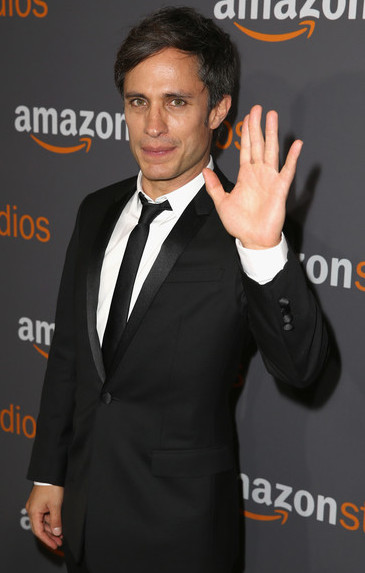 This weekend at the Golden Globes, an unexpected but not all that surprising reunion of the best friends / stars of the Oscar nominated road trip classic Y Tu Mama Tambíen (2001) occured. Both Gael García Bernal and Diego Luna came to international fame together in the early Aughts and they're both still riding high in movies from Hollywood and outside of it.
This weekend at the Golden Globes, an unexpected but not all that surprising reunion of the best friends / stars of the Oscar nominated road trip classic Y Tu Mama Tambíen (2001) occured. Both Gael García Bernal and Diego Luna came to international fame together in the early Aughts and they're both still riding high in movies from Hollywood and outside of it.
I had the opportunity to speak with Bernal a month ago about his sturdy career, its auteurist origins, and his current busy playfulness. He's now juggling streaming television stardom (Mozart in the Jungle), occasional directing gigs, frequent producing duties, upcoming starring roles (Zorro?) and still doing what he was doing in his very first years of fame: headlining artistically ambitious Spanish language Oscar submissions. Though neither of his current films (Mexico's Desierto and Chile's Neruda) made Oscar's finalist list, Neruda did receive a well deserved Golden Globe nomination.
Gael full plate is just rewards for his sturdy talent and impressive range but it's also a very happy reminder that some mesmerizing debuts like his own in the Oscar nominated Amores Perros (2000) don't result in flash in the pan quick fades but long and beautiful careers.
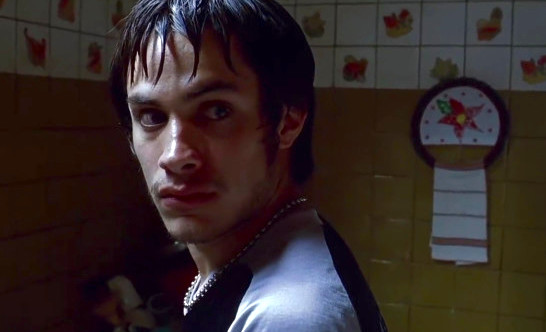
NATHANIEL R: Your first movie Amores Perros was an international success and you've been busy ever since. How much of this career did you imagine for yourself back then?
GAEL GARCIA BERNAL: I don't know if in practical terms I imagined any of this. But I did imagine the need to do what I wanted to do and to be very free with it. This was something I saw, wanted and pursued. The rest? I don't know. I don't know. It happened in the way it happened. It's inexplicable for me. [Laughs]
Your filmography is loaded with auteurs and now you've added Pablo Larraín with Neruda. Was this something you worked for or is this how things developed because of the first two movies?
A bit of both. You get sort of spoiled working with really good directors so you want that same experience constantly.
But also, formally, I wanted to do good movies, I want to do movies that I'll end up liking.
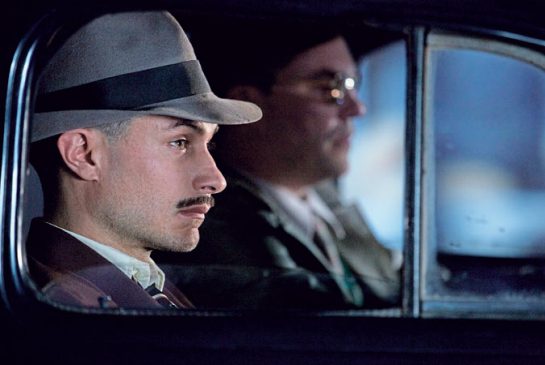
NATHANIEL: So much of Neruda's unusual tone rests on your character. It's self-reflexive like 'is this comedy? is this fiction?' So did you approach Óscar Peluchonneau in the same way you'd craft a more realistic character or were going for a specific style?
No, no, style is the accident. I begin with a combination of things, of many archetypes -- the incorporations of what we consider "pillars" of a character. Than we build around that. This was also what's nice about working with Pablo. [We both] have a connection to the object that's amorphous. We start to mold and we see where it's at and where it's going. With the ideas we have, we fix it, change it, turn it upside down, and see how it reacts and how it makes noise. That's how it begins and it continues and then develops into an essay.
If you have a preconceived notion of where it's going to go, that's style or design and publicity. In cinema we have to take our chances and play around with a lot of unknowns.
So it's artistic trial and error.
Even now when the film is out, we still don't know what we did! We want to see what everyone's reactions will belike.
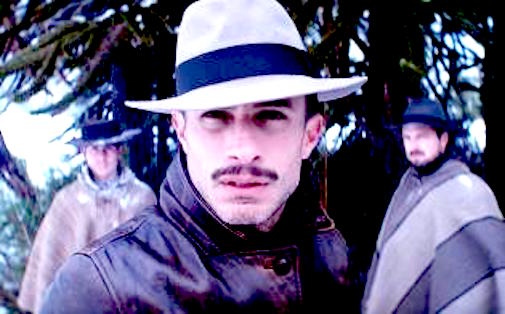
It's a great movie and I was so happy it got the Globe nomination. But I have to say it was so much more playful than what I expected. Larraín's movies are so dark.
It depends -- I mean, No has a lot of comedy highlights.
That's true but some of his other Chilean movies are just brutal.
Oh yeah. Like El Club. But what a great movie, no?
It's true. When I go in to his movies I steel myself for something really tough.
[Laughter] Yeah.
Was it fun to play this character because he's such a "character?
It was very fun, yes. He's aware or unaware that he's a "character." At the end of the day it's a stylized version of social interaction. There's something sociological about that. We establish this thing like 'we're all characters and we're all playing parts and people are judging how well we play that.'
This is a two hander in a lot of ways but it's unusual in that you're not really acting opposite Luis Gneccho who plays Pablo Neruda. You're not really doing scenes with him. So did you work with him or just Larraín.
We discussed it a lot together. We wouldn't have scenes 'together' but he'd be walking from left to right and I'd be walking right to left. We talked a lot about what the hell we were doing! We had a scene where we actually meet.
I don't remember that!
It didn't end up in the movie.
The reason I asked about the style of the performance is it seems like your movies have been -- well, I also saw Eva Doesn't Sleep. That's another movie where it's a very heightened kind of acting.
I was also playing a narrator in that one! I'm glad you saw that movie. I love that movie. It was small but a really interesting exercize.
I know you've done some directing, short films and TV. How different is that for you than acting?
You have to take in many considerations that you don't when you're acting. And you can't only concentrate on your own job. You have to be aware of everyone's jobs. I enjoy doing both but whenever I get to only direct or only act, it's fantastic. When I act and direct it's a little bit too much.
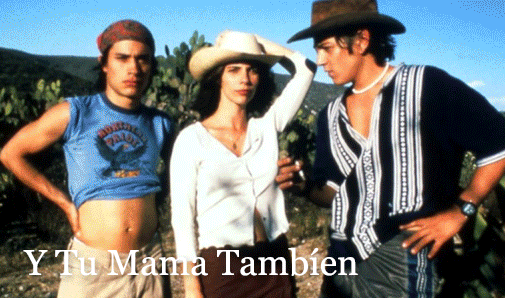
I could see that. You have so much happening right now. Another season of Mozart in the Jungle and you were just in Desierto. That role as an immigrant crossing the border was so highly physical. There's not a lot of writing about the character. It's almost like a movement film.
Yes. It demanded that I play around with a character that doesn't speak much. Film is action -- in a way film is action more than words. It would be much more difficult to do a film with only words.
So after all that warming up are you ready to head into your Zorro film with Alfonso Cuarón.
I'm already very prepared! But when that's going to happen I don't know
Any concern with taking on a role that's so iconic?
Nothing compares to the nerve wracking aspect of interpreting Che Gueverra. [Laughs] Zorro can be reinterpreted many many times. Who knows what our take on it will be.
Any hopes to work with Pedro Almodóvar again -- that turned out so well with Bad Education?
It depends. I mean, if he calls me, yeah! It would be fun to do another film. But this time with less hours of makeup would be nice. It was fun playing a transgendered character -- I was amazed by the character that ended up coming out.
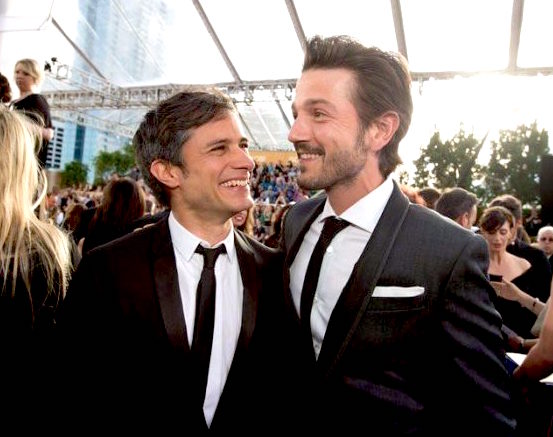 Gael and his favorite co-star Diego Luna reunited at the Golden Globes
Gael and his favorite co-star Diego Luna reunited at the Golden Globes
You've been in several films that have been Oscar nominated - it's almost like you're a good luck charm. Do you enjoy awards show nights or does it feel like work?
If I had to do them every day or once a week, maybe I'd be dreading them but it's fantastic for the film. The conversation and the attention that gets drawn to the film, I like it. I have a lot of fun doing it.
